‘Artificial Intelligence Has Become the Lifeblood of the Global Economy’
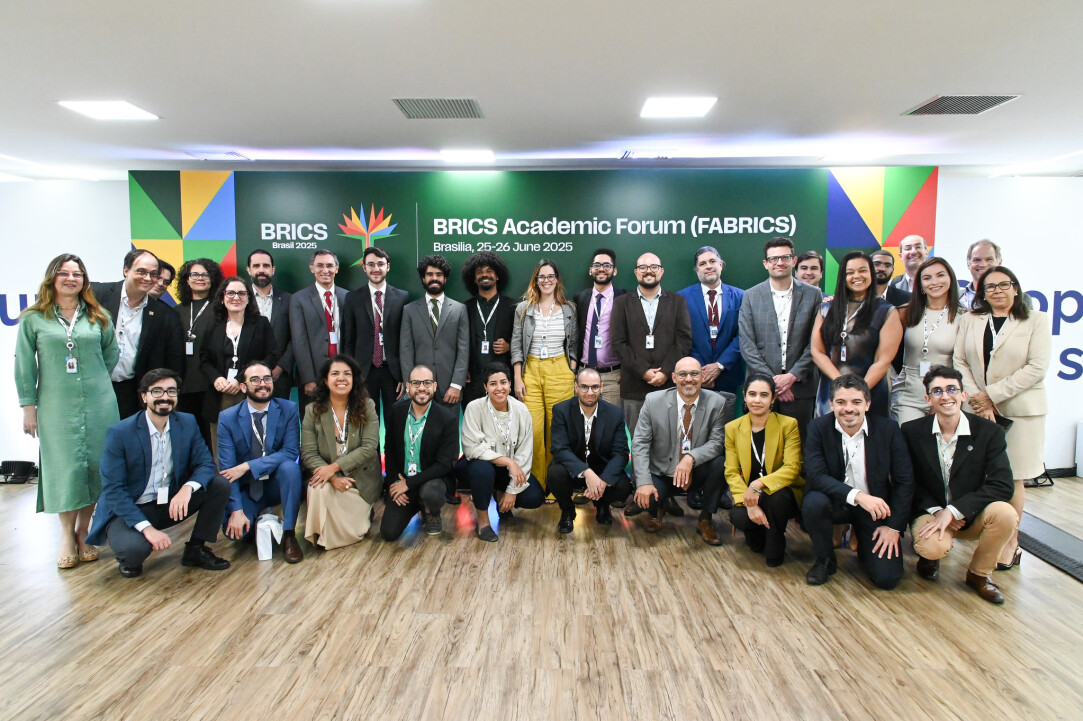
Experts from HSE University took part in the BRICS Academic Forum (FABRICS) held in the capital of Brazil this year. The main theme of the event was to discuss cooperation among countries in the Global South amid geopolitical turbulence and rapid technological change. Academics and experts from BRICS member states and partner nations explored topics such as global healthcare, AI technologies, trade, climate change, and reform of the multilateral global security and governance architecture.
The Academic Forum, held on June 25 and 26, 2025, served as a platform for open dialogue and the development of joint initiatives aimed at strengthening the role of the BRICS countries on the global stage.
The forum opened with a welcoming address from Victoria Panova, Vice Rector of HSE University, Head of the BRICS Expert Council–Russia, and Russia’s Sherpa in the W20. She emphasised that over the past 17 years, the Academic Forum has become a vital platform for dialogue, problem-solving, and collaborative intellectual efforts.
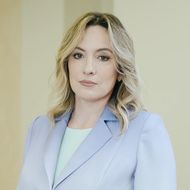
Victoria Panova
‘We are living in an era where questions of peace and sustainability are becoming decisive. The BRICS countries have already demonstrated their capacity for coordinated action, including in response to recent international crises. As an academic community, we are not only obliged to analyse what is happening, we must also articulate the principles on which a new model of global cooperation can be built,’ noted the HSE Vice Rector.
Victoria Panova cited forecasts suggesting that by 2030, the Global South’s share of the world economy will exceed 57%, and trade between countries in the region may reach 14 trillion US dollars. She also presented results from the first comprehensive analysis of how the BRICS countries are fulfilling their own commitments, conducted in 2024 with the participation of the Council of BRICS Expert Centres. Victoria Panova announced plans to make this type of research a regular practice, alongside the creation of a BRICS digital document repository—a unique resource for scholars and practitioners that will bring together all of the grouping’s key materials since its inception.
At a session on AI governance, Konstantin Vishnevskiy, Director of the Centre for Strategic Analysis and Big Data at the HSE Institute for Statistical Studies and Economics of Knowledge, and an expert with the BRICS Expert Council–Russia, delivered a presentation. He noted that ‘artificial intelligence has become the lifeblood of the global economy,’ with the global AI market approaching 640 billion US dollars and continuing to grow rapidly.
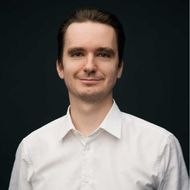
Konstantin Vishnevskiy
‘Almost every second AI solution is being developed in the BRICS countries or for their markets. This highlights the bloc’s immense technological potential. However, it is not only about competing in the global race—we must also set the principles upon which global AI governance will be built,’ he said. ‘We must ensure that technological development is ethical, fair, and inclusive. AI must not become the cause of new digital inequality—on the contrary, it can and should be a tool for levelling the playing field, especially for countries in the Global South.’
The expert also spoke about the upcoming launch of an international AI foresight initiative in 2025, which was commissioned by the President of Russia. HSE University is serving as the methodological lead for this project, coordinating the joint efforts of researchers, public institutions, and businesses to define priorities for both fundamental and applied research in the field.
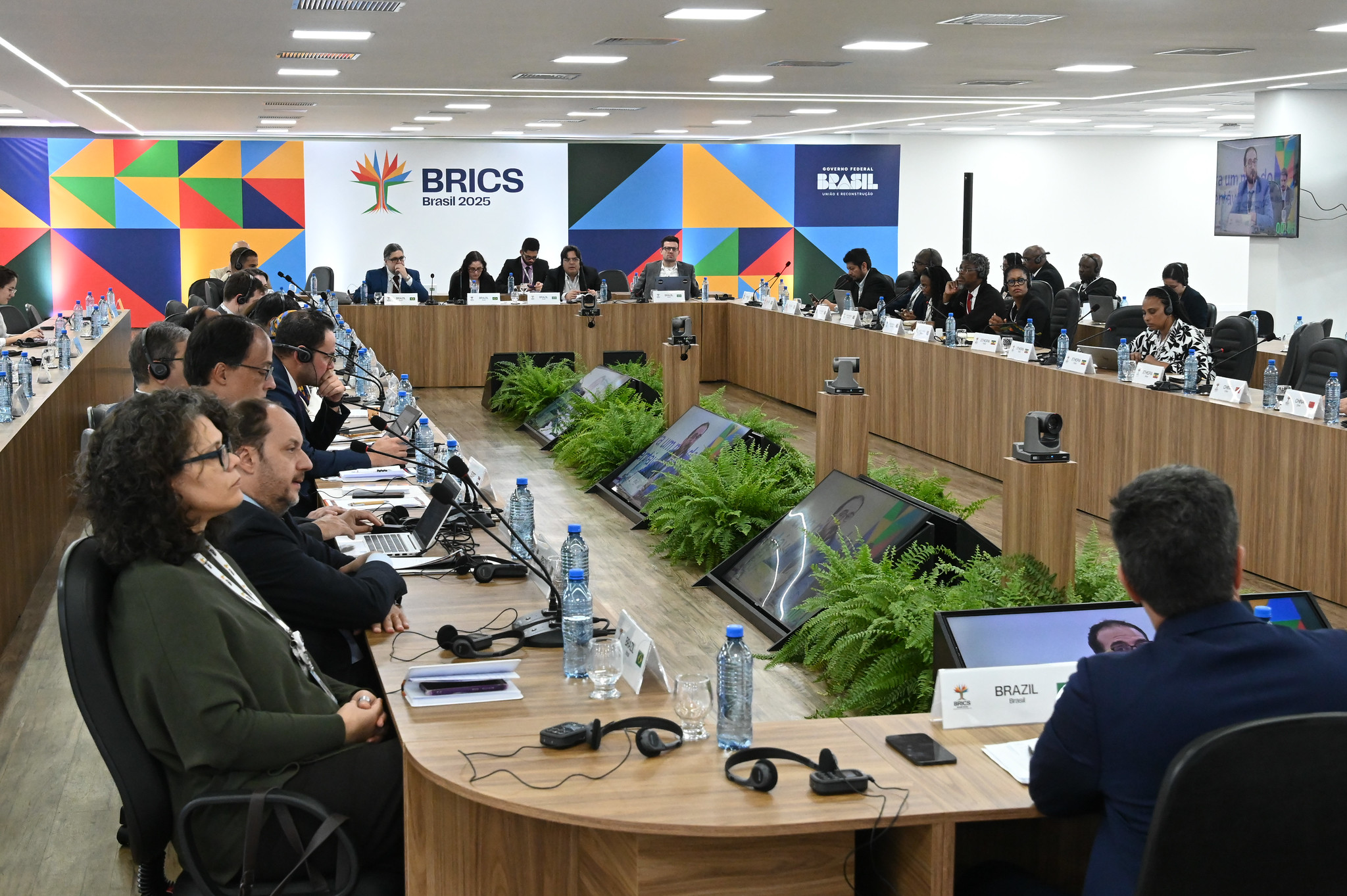
Igor Makarov, Head of the School of World Economy, Director of the Laboratory for Economics of Climate Change at the HSE Faculty of World Economy and International Affairs, and expert of the BRICS Expert Council–Russia, spoke during the session on climate change, emphasising the need for BRICS to formulate its own agenda in the run-up to the COP-30 climate conference in Belém. He highlighted the fact that current green transition models largely reflect the interests of developed countries and fail to take into account the realities of developing economies.
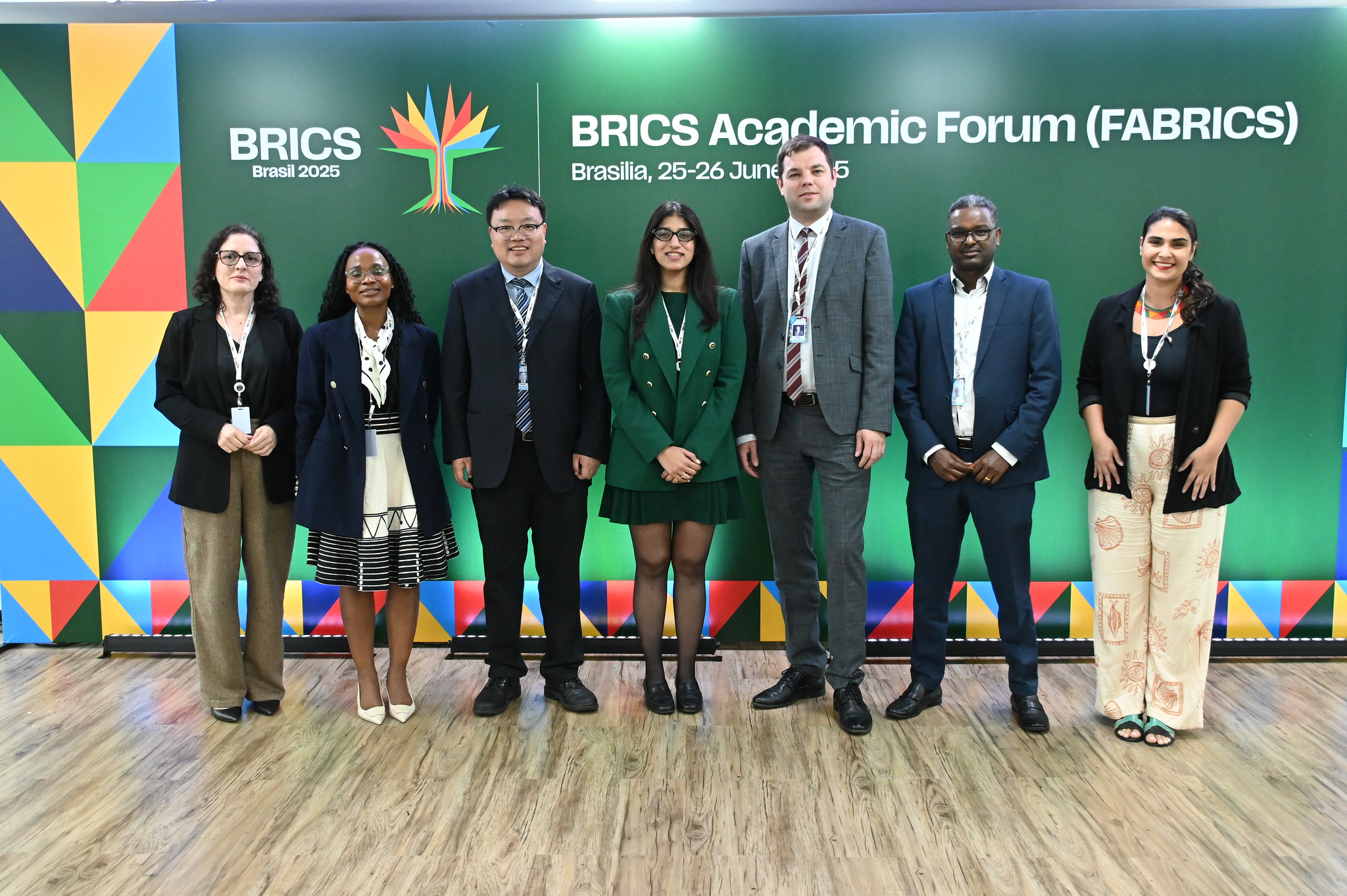
‘There is a lot of discussion today about the ‘just transition,’ yet universal solutions continue to be imposed without considering the actual circumstances in Global South countries. BRICS can offer an alternative approach based on technological neutrality, balancing mitigation and adaptation efforts, and respecting national specificities. It is crucial not to merely repeat long-term targets, but to move towards shaping a new consensus that reflects the genuine interests of the majority of countries worldwide,’ Igor Makarov stated.
The speaker suggested launching a multilevel discussion on a new sustainable development agenda with the BRICS expert community as the foundation for a unified position at global forums, including the UN system.
As a result of the two-day session, the BRICS Academic Forum in Brasilia has developed expert recommendations, which will be forwarded through the Sherpa channels to the leaders of the BRICS countries before the upcoming summit. These recommendations cover a range of key areas, including the development of a fair global governance architecture, coordination on climate change initiatives, digital transformation, and strengthening the institutional capacity of BRICS.
See also:
Roundtable on Russia–China Cooperation in Antimonopoly Policy Held at HSE University
HSE University hosted a roundtable titled ‘New Challenges for Antitrust Regulation: The Chinese Perspective.’ The event was organised by the International BRICS Competition Law and Policy Centre (BRICS Centre). Special guests included Chinese colleagues from the Competition Policy and Assessment Centre (CPAC) of the State Administration for Market Regulation of the People’s Republic of China (SAMR). Last year, the BRICS Centre and CPAC SAMR signed an agreement on strategic cooperation.
Viva o Brasil!: HSE University–St Petersburg Hosts Festival of Brazilian Culture
HSE University–St Petersburg wrapped up International Partners' Week with a lesson on Portuguese, a workshop on the dances of various Brazilian regions, a lecture about one of the most popular Brazilian musicians and a live performance by his devotees. Organised by the Bachelor’s programme in Media Communications, the 'Viva o Brasil!' festival invited students to explore the culture of one of the largest countries in Latin America.
First Lady of Brazil Visits HSE University
On May 7, Janja Lula da Silva—the First Lady of Brazil and a prominent advocate for sustainable development who initiated the Global Alliance Against Hunger and Poverty—visited HSE University. She held a meeting with HSE University Rector Nikita Anisimov, where they explored promising avenues for strengthening Russia–Brazil collaboration in science and education. HSE University also hosted a round table discussion titled ‘The Global Alliance Against Hunger and Poverty as a Key to Modern International Cooperation,’ featuring Janja Lula da Silva as a distinguished guest.
‘The Trip Exceeded All Our Expectations’: HSE Students Take Part in BRICS Youth Innovation Summit 2025
The BRICS Youth Innovation Summit 2025 was held in Cape Town on April 10–11, 2025. The event was attended by political and business leaders from Brazil, Russia, India, China, and South Africa. The summit focused on the theme ‘Innovating the Future: Technology for Sustainability and Social Good,’ under which the participants presented their projects. Students of the Faculty of Economic Sciences have shared their experiences of the trip to South Africa, their presentations at the BRICS summit, penguin encounters, and more!
HSE’s Education Observatory Establishes Research Network Across All BRICS Countries
The International Education Observatory initiative, launched by HSE University to focus on expert evaluation, analytics, and joint scientific research, has successfully completed the formation of a research network across all BRICS nations. South Africa was the final link, with the University of Pretoria and the University of the Witwatersrand joining experts from Russia, China, India, and Brazil.
‘Brazilians and Russians Share a Unique Connection’
Tobias Vilhena de Moraes is a historian working at Museu Lasar Segall inSão Paulo, Brazil, and a faculty member of the Institute of Philosophy and Human Sciences at the University of Campinas. He is now working on a master’s degree at HSE University-St Petersburg.
‘The Defence Was Both Interesting and Nerve-Wracking’
Ana Livia Araujo Esteves, from Brazil, lecturer at the HSE School of International Regional Studies, has recently defended her PhD at HSE University. In her interview with the HSE News Service, she talks about her research into Brazilian–Russian relations, the difficulties of the thesis defence process, and her further plans in academia.
HSE and University of Campinas Celebrate World Logic Day Together
On January 15, 2025, the Russian-Brazilian Colloquium on Logical Pluralism was held at the HSE International Laboratory for Logic, Linguistics and Formal Philosophy to mark World Logic Day. This event was part of the joint project ‘Pluralistic Perspectives on Logic and Formal Philosophy,’ implemented by the laboratory and the Centre for Logic, Epistemology and the History of Science at the University of Campinas (Brazil) under the International Academic Cooperation competition.
The Future Through the Eyes of Young Scientists
A delegation of teachers and students from the HSE Campus in Nizhny Novgorod participated in the IV Young Scientists Congress and the IX BRICS Young Scientists Forum held in Sochi. These two key events of the Russian Decade of Science and Technology brought together representatives of the academic and university community, state corporations, private businesses, and public organisations to envision the future of Russian science through the lens of the younger generation.
‘We Need Our Own AI Models Trained on Local Data’
The digitalisation of the economy and the rapid development of artificial intelligence (AI) technologies pose new challenges for antitrust authorities worldwide. Major players in the AI market, equipped with significant resources, can block new entrants and set anti-competitive prices. Additionally, the use of AI raises increasingly complex ethical questions for which the global community has yet to develop answers. These and other issues were discussed at the Third BRICS+ Digital Competition Forum.


